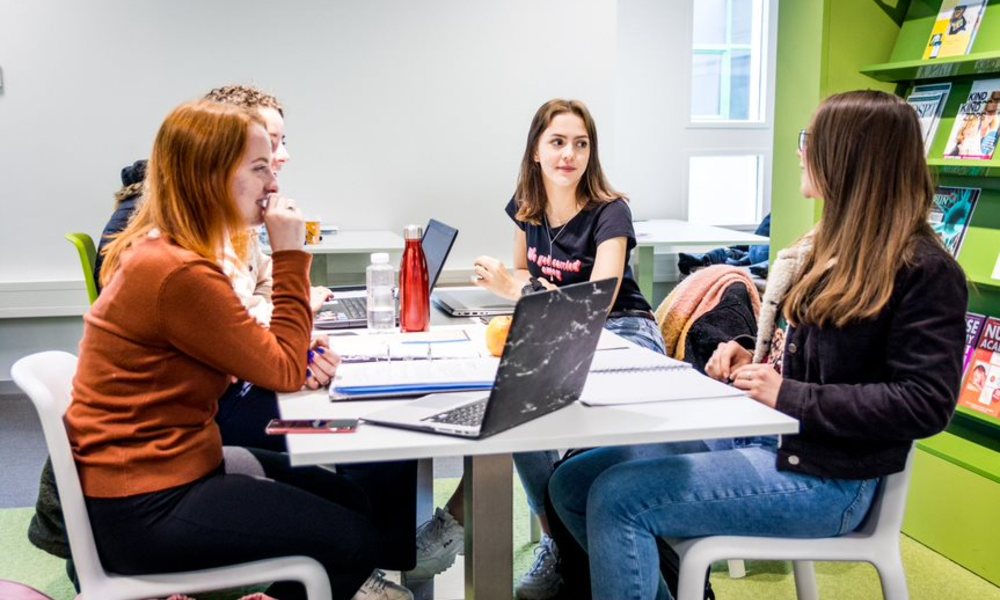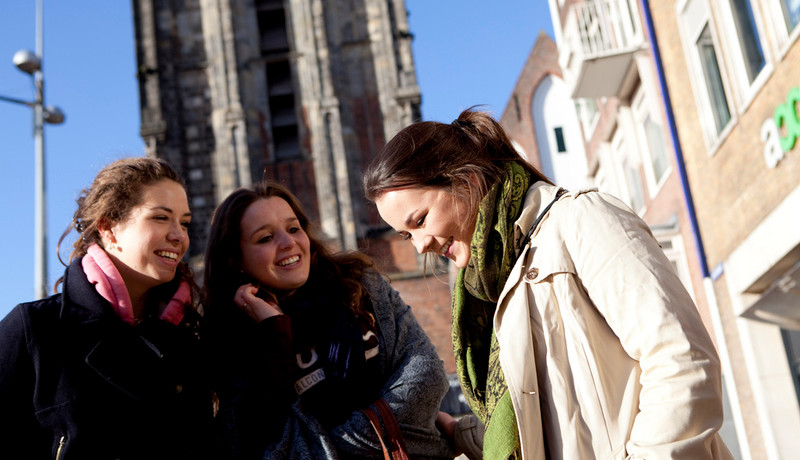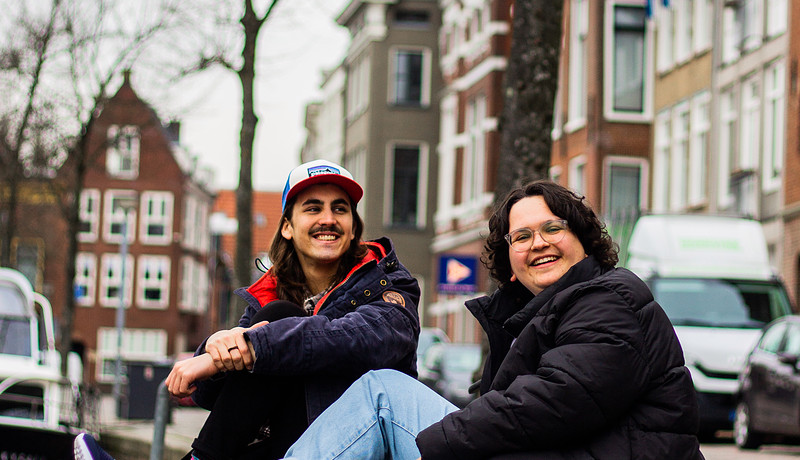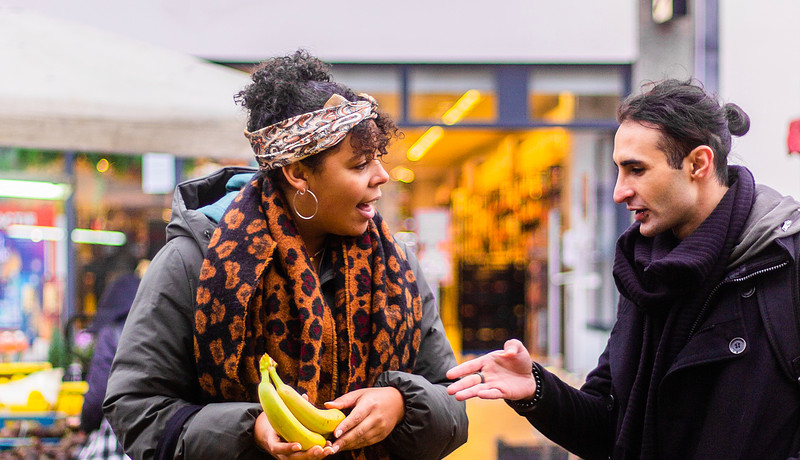Healthy Ageing

Healthy Ageing
- Level
- Language
- English
- Credits
- 30 ECTS
- Startmonths
- Start: February
- Locations
- Groningen
The programme Healthy Ageing explores how good health and well-being at every stage of life contributes to how individuals and populations age.
About this programme
* The English taught programmes Global Health and Healthy Aging will not be offered in the first semester (start September) of the academic year 2024 - 2025, due to an update of the curriculum.
Having a healthy lifestyle not only applies to those who are older but applies across the life-course, at all stages. It is not only the healthcare field that is involved with heathy ageing, technological developments can also contribute to a healthy lifestyle in children, adults and seniors. By combining several disciplines – for example healthcare and technology, epidemiology, sociology, ethics – Healthy Ageing offers the opportunity to explore a wide range of perspectives as to how individuals and populations can age with optimum health.
As life expectancies rise, so does the importance of reducing the number of years with illness. Health care services and systems face challenges just as do governments and policy makers, to effectively accommodate people to living longer and healthier lives. During the programme, students will work together in interdisciplinary groups, to investigate both the challenges and opportunities of an ageing world.
The framework of the programme consists of the following inter-related modules:
Future of Health
How do societal developments in health care impact individuals and populations? What measures can be taken to ensure healthy ageing? Preventative and self-care? What processes of growth, change and stability will we be dealing with as we age? This module examines future challenges faced by health care professionals of the future.
Assessment: Essay
Health & Technology
Here we look at how e-health and health technology can successfully contribute to changes in health care. In part as a result of an ageing population, the need for cost effectiveness, knowledgeable and empowered patients – there is an increasing need and demand for self- management. The ways in which E- health and health technology can contribute to the various challenges facing health care systems and health care delivery are key aspects of this component.
Assessment: Infographic/ presentation/ debate
Global Health
It takes into account the influence of wider aspects such as globalisation, social determinants, health systems and international policies that lie outside the direct sphere of influence of an individual or population. The newly acquired knowledge can be used to set up effective strategies for policy advice in one’s own professional field.
Assessment: Written report
Bridging the Gap: Ageism
Key themes addressed are those associated with growing older – frailty, dementia, ageism. Here stereotypical ideas associated with older people are challenged as we “bridge the gap” and interview those who are experiencing later life. Practical research carried out on seniors in the form of a semi structured interview which further facilitates learning and knowledge.
Assessment: Interview/ Presentation
Innovation Project 1 & 2
The programme additionally prepares you to cooperate in international, multidisciplinary teams by executing a real project about a health problem in an international context. Within this integral task, which makes up the core of the programme, you will develop a health solution for a Global Health problem in a group setting. The project module is a compulsory component in the first period of the programme and runs for 10 weeks. This allows you to work together in small groups, following the stages of the design thinking approach to find an innovative solution to a real life problem.
Assessment: Product/ report/ presentation
All modules are 5 credits and run for a period of 10 weeks. The module Global Health is also offered as a single “stand alone” module.
Before you can start
- You are a third-year or fourth-year student (Bachelor level undergraduate or associate degree).
- You have a background in nursing, allied health care studies, midwifery, social studies, human technology studies or sport studies.
- You have completed the first year of your programme and have obtained at least 45 ECTS in the main phase (year 2, 3 (or 4)).
- You have experience in project management and have developed research skills. No general education on these two topics will be offered.
- You will need to work in an international interprofessional multidisciplinary team and have sufficient knowledge of the English language (graduation level secondary school). Useful additional personal characteristics for participation in such a team are: an open mind, the ability to listen actively, tolerance, flexibility, transparency in motives, interests and values.
- Language requirements
Academic IELTS 6.0 overall
How to apply
Check www.hanze.nl/applicationexchange for the application details.
Admission & application
Please check with your home university whether there is an agreement set up with the Hanze School that is offering the exchange programme of your choice. To apply for and be admitted for our exchange programme you should take the following steps
-
1. Be nominated by your home university
Once you have been nominated, your nomination will be checked by us and confirmed to your home university by email. You will receive your application link during our application period.
-
2. Submit your online application
Once you have been nominated by your home university you will receive a personal application link and the application instructions during our application period. The application is fully digital and documents do not have to be send by email or postal mail. Make sure you do not miss our application deadline!
-
3. Letter of Acceptance
Once you have submitted your application we will check your documents. If you have to re-submit any documents, we will let you know. We will be sending out Acceptance Letters from the beginning of May when you start in September and from the middle of October when you start in February.
Find out more about our application process and practical matters.
Frequently Asked Questions
Contact
-
Contact exchange programme Healthy Ageing



